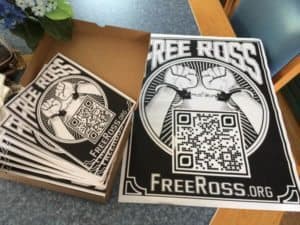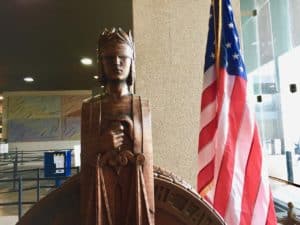 Ross Ulbricht has been denied his last chance to appeal the sentence of double life plus forty years (with no chance of parole) he received after being convicted of running the “Silk Road” illicit online marketplace in 2015.
Ross Ulbricht has been denied his last chance to appeal the sentence of double life plus forty years (with no chance of parole) he received after being convicted of running the “Silk Road” illicit online marketplace in 2015.
The decision to deny the request was made June 28th.
In 2015, Ulbricht was convicted by a jury of money laundering, hacking, sale of forged ID documents and drug trafficking.
He received “the severest sentence possible” from presiding Judge Catherine Forest, who received death threats during the course of the trial.
Silk Road has been called “The Amazon of the Dark Net,” and its users browsed the site anonymously by obscuring their identities and locations through a free anonymizing software called Tor.
Considerable evidence indicates that Ulbricht, a libertarian, ran “Silk Road” under the psuedonyms “Dread Pirate Roberts” and “Frosty Altoid.
 The website of the “Free Ross” campaign claims that Silk Road prohibited the sale of “anything involuntary that created victims or used force” (such as child pornography). However, there are indications that, in addition to an array of narcotics, Silk Road users could also buy weapons, stolen data, hacking services, contract murders and date rape drugs on the site.
The website of the “Free Ross” campaign claims that Silk Road prohibited the sale of “anything involuntary that created victims or used force” (such as child pornography). However, there are indications that, in addition to an array of narcotics, Silk Road users could also buy weapons, stolen data, hacking services, contract murders and date rape drugs on the site.
Products were mainly paid for using Bitcoins and were largely shipped by mail.
Ulbricht’s legal team claims that, during the course of Ulbricht’s trial, Judge Forest allowed the unfair hearing of unproven allegations claiming that Ulbricht had attempted to take out contract killings during the course of the Silk Road investigation.
According to the Free Ross website, two undercover officers involved in the Silk Road case were convicted of committing improprieties during the course of the investigation and are currently incarcerated.
Ulbricht’s lawyers also downplayed Ulbricht’s involvement at the site and claimed that his client has given up the reigns to Silk Road early on to Mark Karpeles, the man responsible for the infamous failure of the MT Gox bitcoin exchange.
But prosecutors countered that when Ulbricht was arrested at the San Francisco Library in 2013, he was logged on to the Silk Road site as an admin.
Police also claimed to have found much evidence of Karpeles ongoing involvement at Silk Road when they seized his laptop during the arrest.
 The latest appeal application was partly informed by claims by Ulbricht’s defence team that investigators surveilled and collected information on Ulbricht’s internet communications without a warrant, thereby violating his fourth and sixth amendment rights.
The latest appeal application was partly informed by claims by Ulbricht’s defence team that investigators surveilled and collected information on Ulbricht’s internet communications without a warrant, thereby violating his fourth and sixth amendment rights.
Ulbricht supporters had hoped that the recent Supreme Court ruling on Carpenter vs. the US would have helped Ulbricht’s case.
In that decision, which was hailed as a major victory by privacy advocates,” judges determined that the fourth amendment of the US constitution grants citizens a “legitimate expectation of privacy” in the treatment of their personal data.

